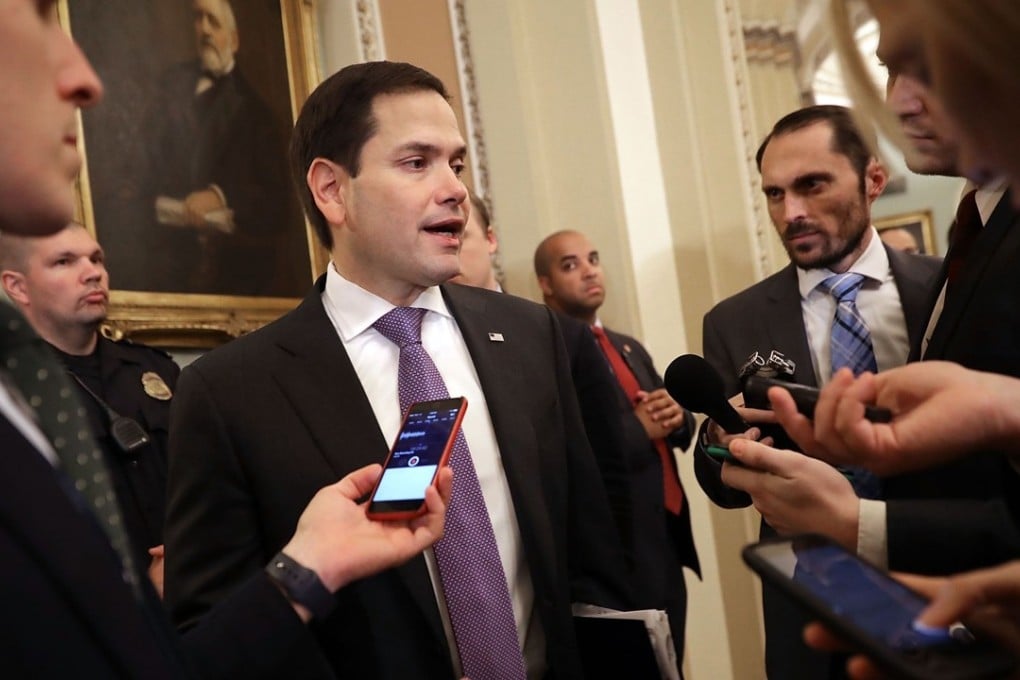Huawei chairman slams US lawmaker calls for its US education partnerships to be investigated
Focus on Huawei’s US research ties comes at a time of heightened tensions between China and the US over the control and development of new technologies

The rotating chairman of Huawei Technologies, China's largest telecoms equipment and smartphone maker, has slammed US Senator Marco Rubio and other US lawmakers for their campaign to have the company’s research partnerships and relationships with US universities investigated on national security grounds, calling them “ignorant”.
“It seems to me their bodies are in the information age but their minds are still in the agrarian age,” Eric Xu, Huawei’s rotating chairman, said in an interview with Light Reading, a US-based digital media and telecoms industry analysis platform, on Wednesday.
A bipartisan group of 26 lawmakers, including Florida Senator Rubio, wrote to US Education Secretary Betsy DeVos last week to highlight the national security implications of Huawei’s research partnerships and other relationships with several dozen American colleges and universities in areas of technology that the Chinese government is trying to dominate.
“Their behaviour shows not just their ignorance of science and innovation but also their own lack of confidence,” Xu said, adding that Rubio and fellow Republican representative Jim Banks were “closed-minded and ill-informed”.
Huawei confirmed the content of Light Reading’s report but declined to comment further on the interview.
The focus on Huawei’s research ties in the US comes at a time of heightened tensions between China and the US over the control and development of new technologies and the implications for national security. President Trump said on Wednesday he will use a strengthened national security review process to thwart Chinese acquisitions of sensitive American technologies, a softer approach than imposing China-specific investment restrictions.